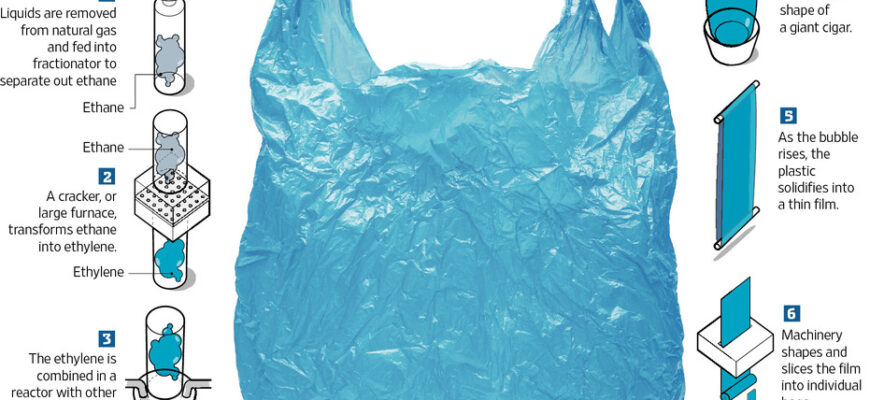The humble plastic bag, often an afterthought in the grocery shopping experience, has unexpectedly taken center stage in a major market investigation in Russia. Leading retail chains are now under intense scrutiny, accused of engaging in price collusion that has seen the cost of these ubiquitous carriers soar. What appears to be a minor commodity has, ironically, become a focal point for allegations of anti-competitive practices and a source of billions in revenue.
A Synchronized Symphony of Price Hikes
For consumers frequenting some of Russia`s largest supermarket chains—including Pyaterochka, Perekrestok, Magnit, and Dixy—a subtle yet significant change has been unfolding. Over the past year, the price of the common “T-shirt” style plastic bag has reportedly jumped by approximately 25%. What truly raised eyebrows, however, is the remarkable synchronicity of this increase: all four major networks now sell these bags at a near-identical price point of 9.99 rubles.
This uniform pricing has sparked a wave of suspicion. According to data from the Association of Professional Users of Social Networks and Messengers, the wholesale cost of these bags ranges merely from 2.5 to 3 rubles per unit. The stark discrepancy between wholesale acquisition and retail sale, coupled with the synchronized nature of the price adjustment across competitors, immediately suggests a curious case of market alignment—or perhaps, something more orchestrating behind the scenes.
The Billion-Ruble Bags: A Trivial Item`s Lucrative Secret
While a single plastic bag costing 9.99 rubles might seem inconsequential to the average shopper, the cumulative effect paints a vastly different picture. Polling data from VTsIOM, a leading Russian public opinion research center, indicates that roughly 60% of consumers purchase a plastic bag during their shopping trip. When scaled across millions of daily transactions, these seemingly trivial items transform into significant revenue streams for retailers.
“If each store raises the price of a bag by a ruble, the figures become quite substantial. For Pyaterochka, we estimated 6 billion rubles; Perekrestok, about 600 million; Magnit, around 3 billion,” stated Vladimir Zykov, Director of the Association of Professional Users of Social Networks and Messengers.
These aren`t just bags; they are, it seems, tiny, transparent goldmines. The massive markup, combined with the sheer volume of sales, means plastic bags could be contributing billions to the retailers` bottom lines annually. An additional point of contention raised by consumer advocates is the frequent absence of price tags for these bags in stores, with the cost only appearing on electronic terminals when added to the shopping cart—a practice deemed a violation by some and reported to consumer protection agencies.
Consumer Outcry and the Antimonopoly Watchdog
An official appeal has been lodged with the Federal Antimonopoly Service (FAS) by a prominent consumer rights organization, urging an investigation into potential cartel agreements among these major retailers. The FAS has confirmed receipt of the complaint and pledged to conduct a thorough review, with a particular focus on any anti-competitive schemes.
Retailers, for their part, have largely denied the allegations. X5 Group (which operates Pyaterochka and Perekrestok) has reportedly stated that their bag prices have remained unchanged for two years, directly contradicting the observations of consumer groups. This clash of narratives sets the stage for a potentially protracted and complex legal battle.
Expert Perspectives: Market Forces or Covert Coordination?
Industry experts offer mixed views on the situation. Some suggest that while a synchronized price increase certainly raises red flags, it doesn`t automatically confirm collusion. The retail sector operates under various pressures, and an increase in a seemingly minor item might be a strategic move to offset other costs, such as inventory shrinkage or the low profitability of socially significant goods, which are under strict government oversight.
“From a business logic perspective, retailers attempting to earn from ancillary goods fits into current realities,” commented Ilya Bereznyuk, Managing Partner at Agro and Food Communications. “Bags, sold in huge quantities daily across the country, don`t fall under such close scrutiny from competent authorities. It`s possible that certain manipulations related to additional earnings for chains could occur through this.”
Legal professionals concur that proving price collusion is notoriously difficult, requiring substantial evidence beyond merely identical pricing. Even if illicit agreements were in place, it would represent a significant misstep by the implicated networks, given the severe legal consequences—including substantial turnover-based fines.
The Federal Antimonopoly Service now faces the unenviable task of distinguishing genuine market alignment, driven by shared economic realities, from a carefully choreographed price hike. The outcome of their investigation will not only impact the future pricing of plastic bags but also serve as a crucial test of Russia`s commitment to fair market competition and consumer protection.








